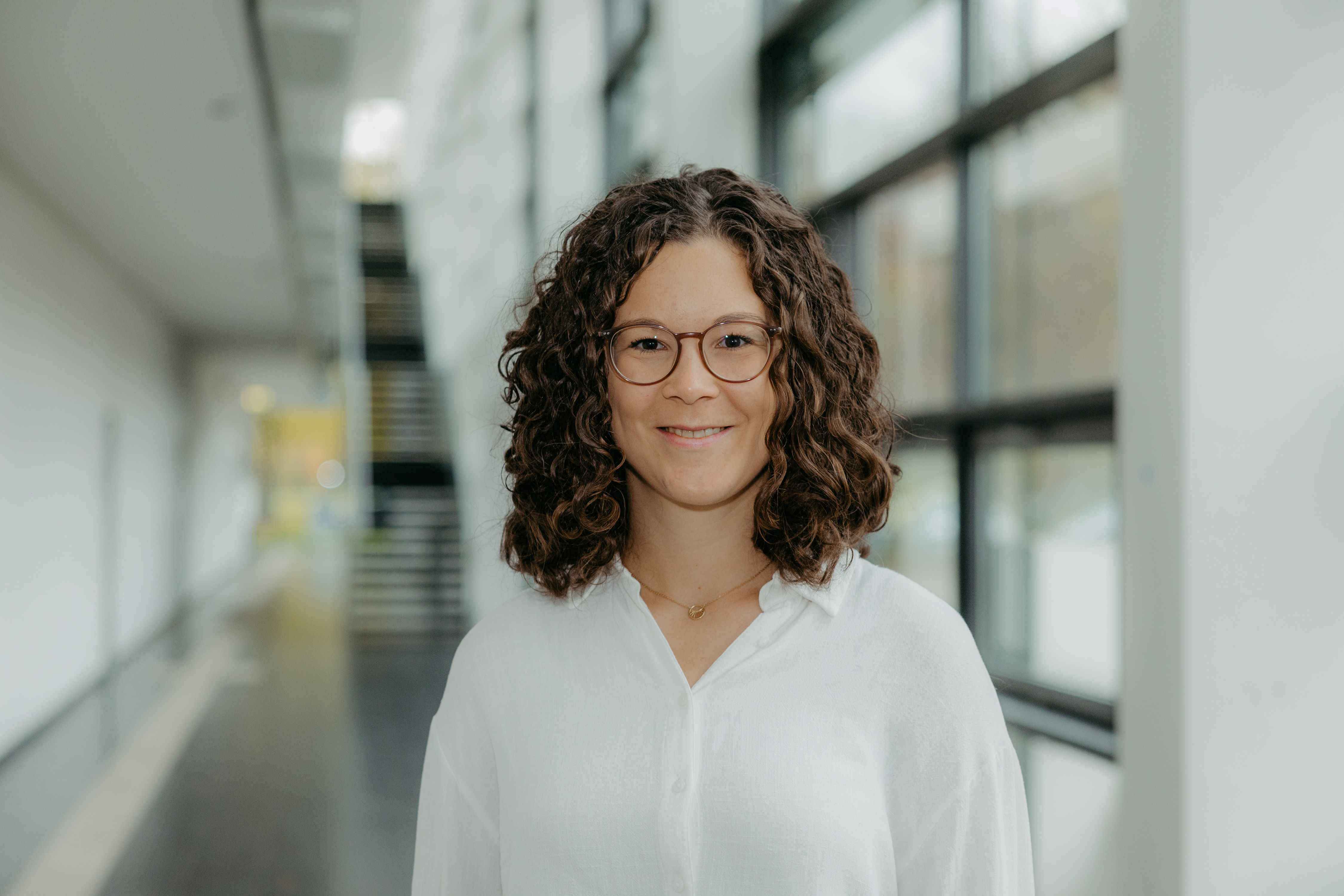Charlotte Ackva

M.Sc. Charlotte Ackva
Lehrstuhl BWL, insb. Management Science
|
Since 10/2021 |
Research associate, Chair of Management Science, Otto-von-Guericke-Universität Magdeburg | |
|
04/2018 - 06/2021 |
Master of Science in Mathematics, Georg-August-Universität Göttingen |
|
|
08/2016 - 10/2020 |
Student assistant, Institut für Numerische und Angewandte Mathematik, Georg-August-Universität Göttingen |
|
|
09/2015 - 07/2016 |
Exchange student, Universitat de Barcelona |
|
|
10/2014 - 09/2019 |
Bachelor of Arts in Mathematics and Philosophy (Teaching Profession Profile), Georg-August-Universität Göttingen |
|
|
10/2013 - 03/2018 |
Bachelor of Science in Mathematics, Georg-August-Universität Göttingen |
2024
Book chapter
Tourenplanung
Ackva, Charlotte; Fassnacht, Lukas; Henninger, Steffen; Hildebrandt, Florentin; Spühler, Felix
In: Radlogistik - Grundlagen zu Logistik und Wirtschaftsverkehr mit Lasten- und Transporträdern - Wiesbaden : Springer Fachmedien Wiesbaden ; Assmann, Tom *1989-* . - 2024, S. 197-212
Standortplanung
Ackva, Charlotte; Fassnacht, Lukas; Hildebrandt, Florentin; Spühler, Felix
In: Radlogistik - Grundlagen zu Logistik und Wirtschaftsverkehr mit Lasten- und Transporträdern - Wiesbaden : Springer Fachmedien Wiesbaden ; Assmann, Tom *1989-* . - 2024, S. 177-195
2023
Peer-reviewed journal article
Consistent routing for local same-day delivery via micro-hubs
Ackva, Charlotte; Ulmer, Marlin Wolf
In: OR spectrum - Berlin : Springer . - 2023, insges. 35 S. [Online first]
Article in conference proceedings
A two-stage Stochastic optimisation model for urban same-day delivery with micro-hubs
Ackva, Charlotte
In: Operations Research Proceedings 2022 / International Conference on Operations Research , 2022 - Cham : Springer International Publishing . - 2023, S. 3-9 [Konferenz: Annual International Conference of the German Operations Research Society, GOR, Karlsruhe, Germany, September 6-9, 2022]
Current projects
Urban Mobility and Logistics: Learning and Optimization under Uncertainty
Duration: 01.04.2021 bis 31.03.2027
The goal of this project is to systematically improve quantitative decision support for urban mobility and logistics, to analyze its methodological functionality, to derive general conceptual insight, and to use the derived concept for future method designs.For applications in urban mobility and logistics, operational decision support needs to be effective, fast, and applicable on a large scale - often under incomplete information. Providers face uncertainty in many components, for example, the customer demand, the urban traffic conditions, or even the driver behavior. Mere adaptions to new information are often insufficient and anticipation of this uncertainty is key for successful operations. In research and practice, a range of anticipatory methods has been developed, usually tailored to specific practical problems. Such methods may follow intuitive rule-of-thumbs, draw on sampling procedures, or use reinforcement learning techniques. While the methods may perform well for individual problems, there is still a very limited understanding of the general dependencies of a method’s performance and a problem’s characteristics. This research project will provide this conceptual understanding.To this end, the project will systematically develop and compare different methodology for a set of problems from three different application areas, one combining urban mobility and transport as a service, one using a network of parcel stations for urban transportation, and one performing pickup and delivery with a gig economy workforce. The three problems differ in several dimensions, especially in their sources of uncertainty. To classify the problems, measures will be developed, for example, with respect to the scale of the problem or structure and degree of uncertainty. For each problem, a set of different methods will be developed. The methods will improve decision support for the specific problems while simultaneously allowing a systematic analysis of dependencies between problem and methodology performance. To this end, additional measures will be developed to classify method performance, for example, decision speed, or the interpretability of a method. Based on the problem and method measures and the extensive experiments and analyses, a framework will be developed to guide future method design for this emerging research field.This project will span six years and will be hosted at the TU München (TUM). During the project, the PI will supervise three PhD-students, each student working four years in one application area. The PI and the students will collaborate with researchers from TUM and the Georgia Institute of Technology.
Stochastic Optimisation of Urban Delivery Systems with Micro Hubs
Duration: 01.10.2021 bis 30.09.2025
To compete with e-commerce giants such as Amazon, many local businesses start to offer fast same-day delivery, often within a few hours after an order was placed. Deliveries are conducted by local delivery fleets. However, the narrow delivery times and the geographical spread of pickup and delivery locations result in a lack of consolidation opportunities. This can be remedied by so-called micro hubs, which can serve as transhipment centres for parcels in urban delivery. Drivers can store parcels from adjacent shops for redistribution. They also can pick up parcels from different shops for joint delivery to customers in the same region. Thus, micro hubs can increase consolidation opportunities and may also enable the use of smaller, green, and clean vehicles for first and last mile delivery. Within this project, optimisation models incorporating consolidation centres in the pickup and delivery system of urban same day delivery are developed. Further, different solution approaches will be investigated to cope for the uncertainty in demand at time of planning.
- Teaching Award Winter Term 2023/24
- Masterarbeitspreis 2022 der Deutschen Gesellschaft für Operations Research (GOR)






